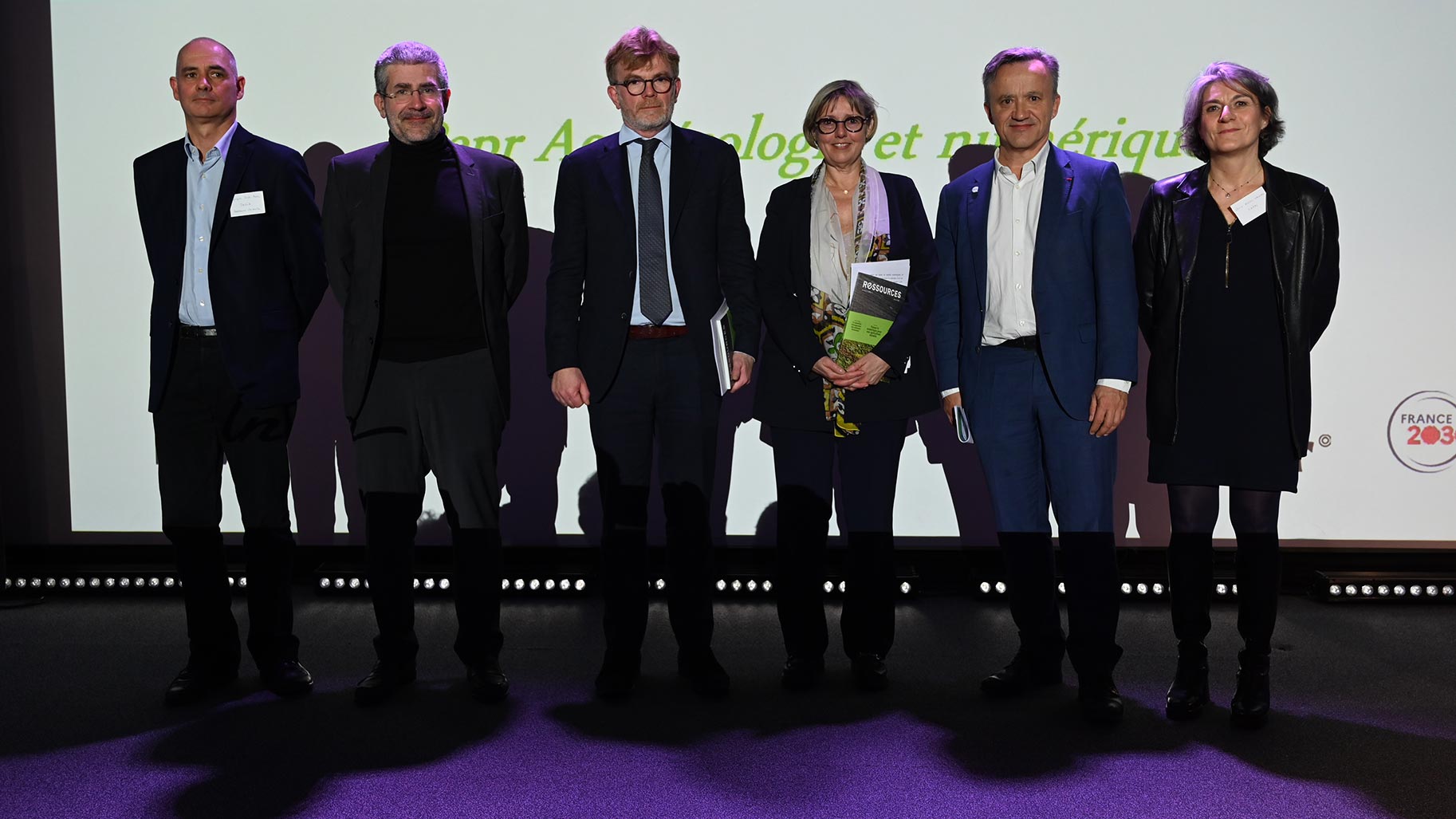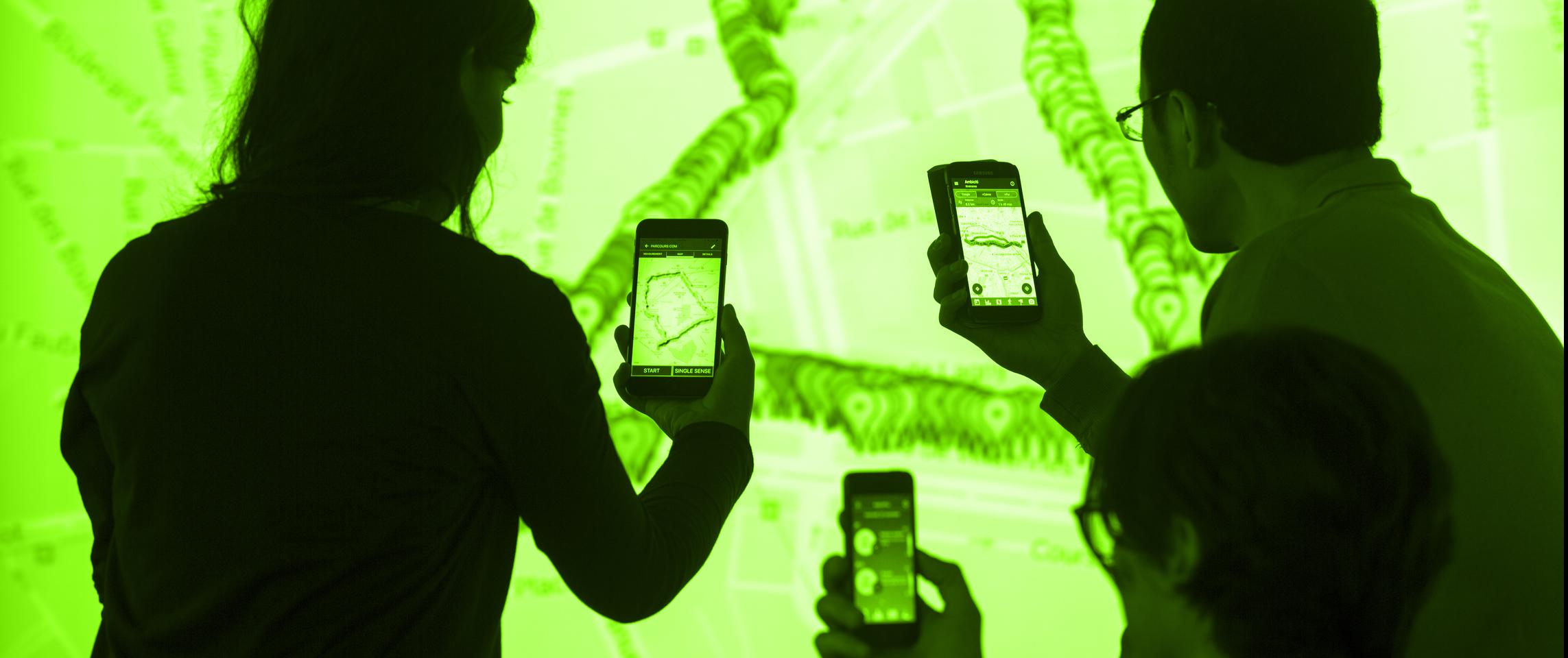Funded by the French government to the tune of €65 million as part of the France 2030 plan, this new PEPR is designed to harness digital technology in order to accelerate the transition to agro-ecology, for the benefit of all farmers. It was launched in the presence of Sylvie Retailleau, Minister for Higher Education and Research, and Marc Fesneau, Minister for Agriculture and Food Sovereignty, alongside Philippe Mauguin and Bruno Sportisse, CEOs of the programme's pilot organisations, INRAE and Inria.

Food sovereignty, Sylvie Retailleau, Minister for Higher Education and Research, Philippe Mauguin, CEO of INRAE, and Claire Rogel-Gaillard (PEPR-INRAE co-leader).
Digital technology is a key means of accelerating the ecological transition of agricultural systems and meeting the challenges posed by food security, the climate and the environment. Research and innovation have a fundamental role to play in building responsible forms of digital agriculture and promoting the development of sustainable production methods.
Inaugurated today at the Cité des Sciences et de l'Industrie at an event attended by 150 actors in the research, higher education, innovation and industry sectors, this programme has been allocated €65 million from the France 2030 plan over eight years, and is designed to accelerate a third agricultural revolution driven by the life sciences and knowledge. This programme will fund high-level research while supporting innovation and its roll-out at regional level. It will also strengthen academic activities in these fields, notably by working closely with the major research universities, and will federate a research ecosystem at the interface between agro-ecology and digital technology by focusing on four priorities:
- supporting changes in practices by studying the place and role of technologies, their impact and public policies;
- characterising animal and plant genetic resources in order to assess their potential for agro-ecology and promote their roll-out;
- using digital technologies and robotisation to develop new generations of agricultural equipment, which will assist farmers with their work and improve animal health and welfare through connected livestock buildings, for example, or reduce the use of plant protection products through precision farming;
- developing digital decision-support tools, especially artificial intelligence for the collection and subsequent analysis of agricultural data, to promote more efficient farming practices.
This research programme is part of the “Sustainable agricultural systems and farm equipment contributing to the ecological transition”1 acceleration strategy in France 2030, focusing on innovation to promote the resilience and competitiveness of the agricultural sector and meet the challenges of climate change and food sovereignty by producing food in sufficient quantities and quality, from both nutritional and environmental perspectives. The participating research teams will work in conjunction with other programmes in this acceleration strategy, including the "Advanced varietal selection" PEPR project, the "Major Robotics Challenge" programme, and the Biocontrol and Biostimulants programme.
INRAE and Inria – long-standing partners and authors of the “Agriculture and Digital Technology” white paper published in March 2022 – have been entrusted with the joint leadership of this ambitious research programme on the synergies between the digital and agro-ecological transitions.
The France 2030 investment plan:
- reflects a dual aim – to transform key sectors of the French economy (health, energy, automotive, aeronautics and space) over the long term through technological innovation, and to position France not just as an actor, but as a leader in tomorrow's world. From fundamental research and the emergence of an idea, to the production of a new product or service, France 2030 supports the entire innovation life cycle right through to the industrialisation stage.
- has an unprecedented scope – €54 billion will be invested to ensure that French businesses, universities and research bodies succeed in their transitions in these strategic sectors. The onus is on helping them provide competitive responses to the ecological challenges of tomorrow's world while maintaining their attractiveness, and on developing the future leaders of our sectors of excellence. The France 2030 plan is defined by two cross-cutting objectives: devoting 50% of its spending to decarbonising the economy, and 50% to emerging players at the forefront of innovation, without any environmentally detrimental expenditure (in line with the “do no significant harm” principle).
- will be implemented collectively – designed and rolled out in consultation with economic, academic, local and European players to determine the strategic orientations and flagship measures. Project developers are invited to submit their applications via stringent and selective open-access procedures in order to benefit from government support.
- is coordinated by the General Secretariat for Investment on behalf of the Prime Minister and implemented by the French Environment and Energy Management Agency (ADEME), the French National Research Agency (ANR), Bpifrance and the Caisse des Dépôts et Consignations (CDC).
More informations : https://www.gouvernement.fr/france-2030 | @SGPI_avenir
